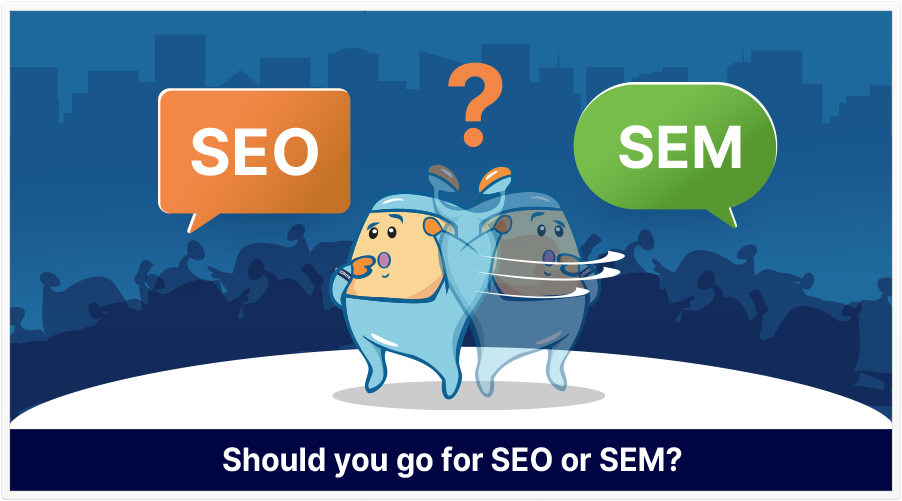
Wondering what SEO and SEM are and how they are different from each other? Not sure which you should go for, for your business, SEO or SEM? In this article, we discuss the differences between SEO and SEM, dive deeper into what they are, and which is the best option for you.
To start, let’s talk about the two main sections of the search results. The topmost section of the search results is the paid search results or pay-per-click/ads part, and the part below it is the organic search results.
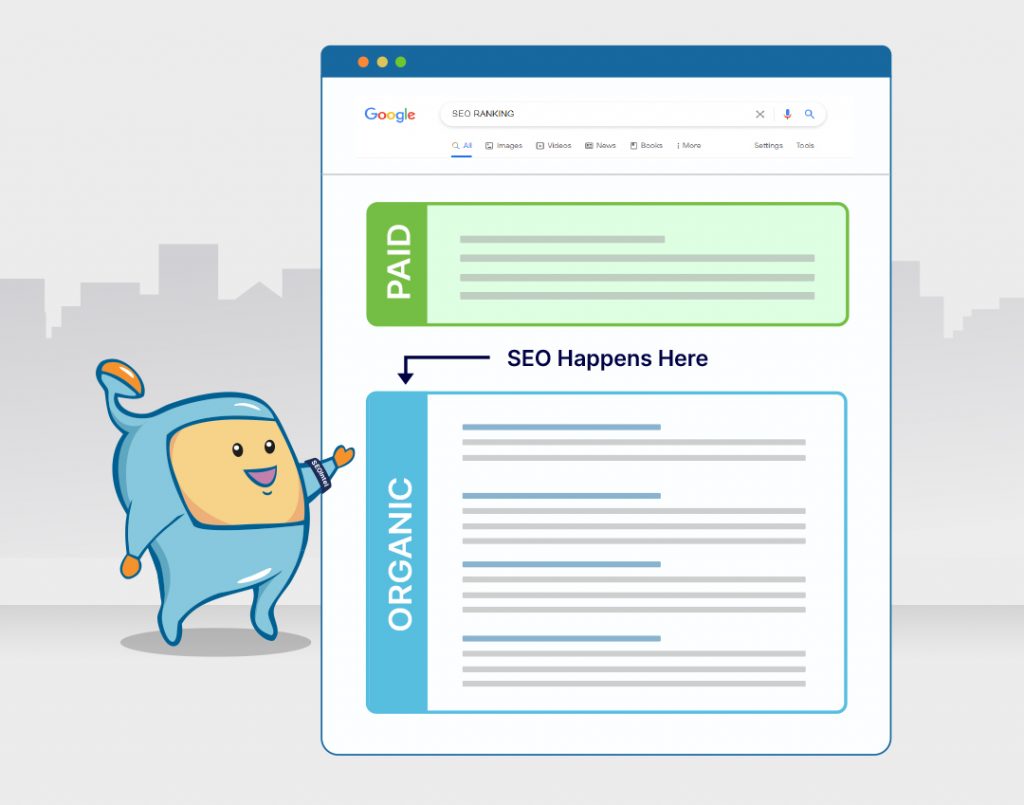
The difference between SEO and SEM is that Search Engine Optimization (SEO) is focused on the optimization of a site in order to rank in the organic search results and gain traffic to a website.
On the other hand, Search Engine Marketing (SEM) is getting traffic and visibility from both the organic search results and paid search, which is the Pay-per-Click or ads part of the search results.
SEO is fully focused only on ranking in the organic search results, while SEM is both SEO and Pay-per-click.
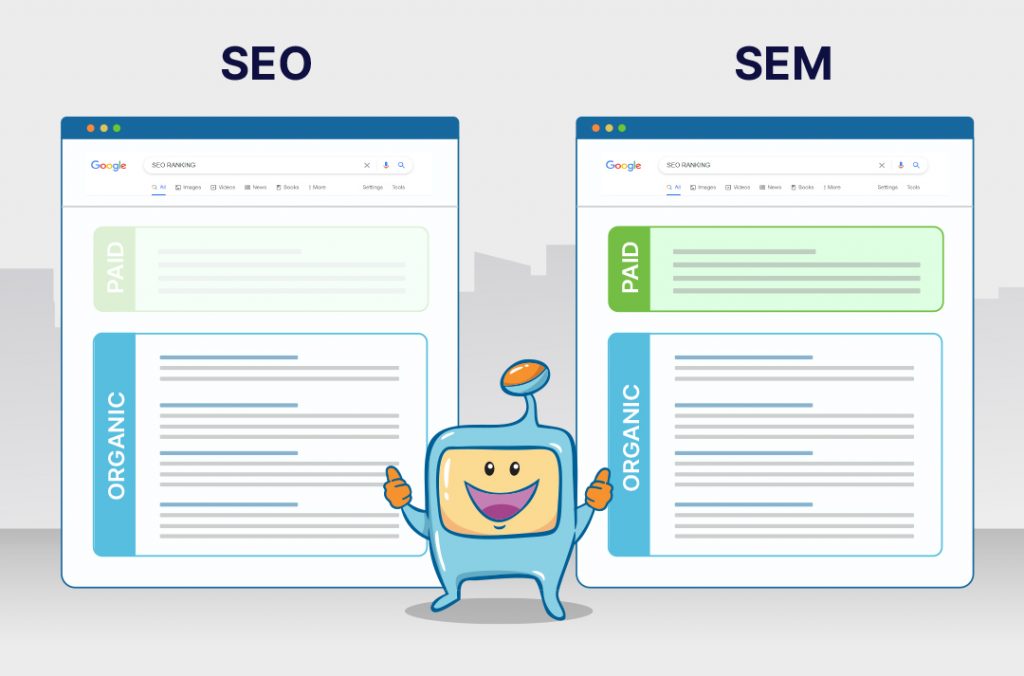
When it comes to similarities, both SEO and SEM basically have the same goals – to have the site appear in the search results and to drive traffic to the website. In addition, to be able to have a successful SEO and SEM campaign, two elements are needed by both – knowing your target audience and knowing the right keywords to target.
Now that we know the differences and similarities between the two, let’s dive further into SEO and SEM, what they are, the different elements to each, and how to set a successful SEO and SEM campaign.
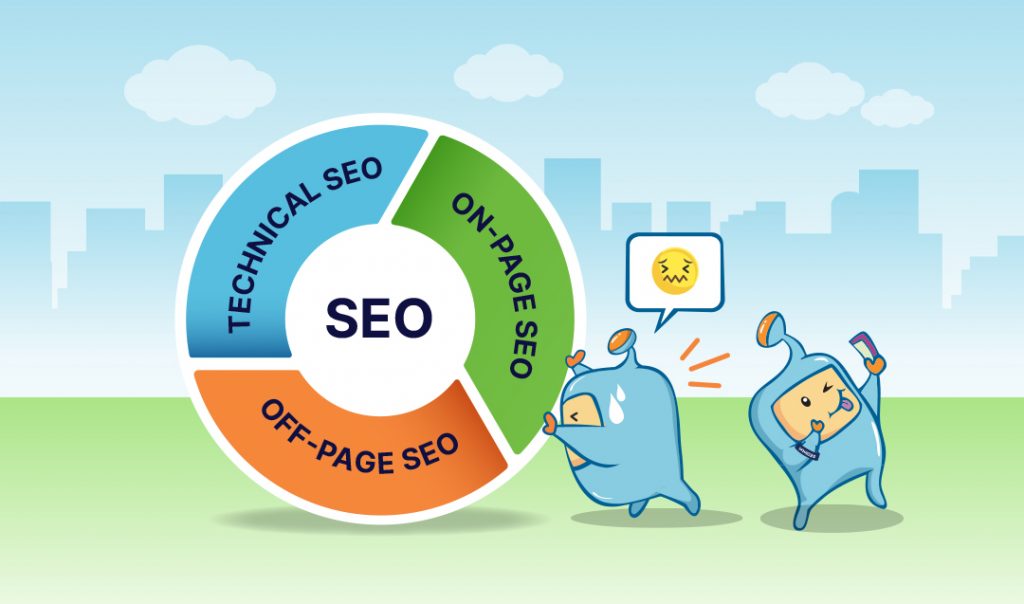
SEO is Search Engine Optimization. It deals with optimizing your website in order to rank in the organic section of the search engine results page (SERPs). According to Google, there are hundreds of factors that they consider when it comes to ranking a page in search. SEO focuses on making your site favorable to Google in order to show up at the top of the organic search results and gain organic traffic to your site.
SEO is divided into three main categories – On-Page SEO, Technical SEO, and Off-Page SEO. Let’s discuss each further.
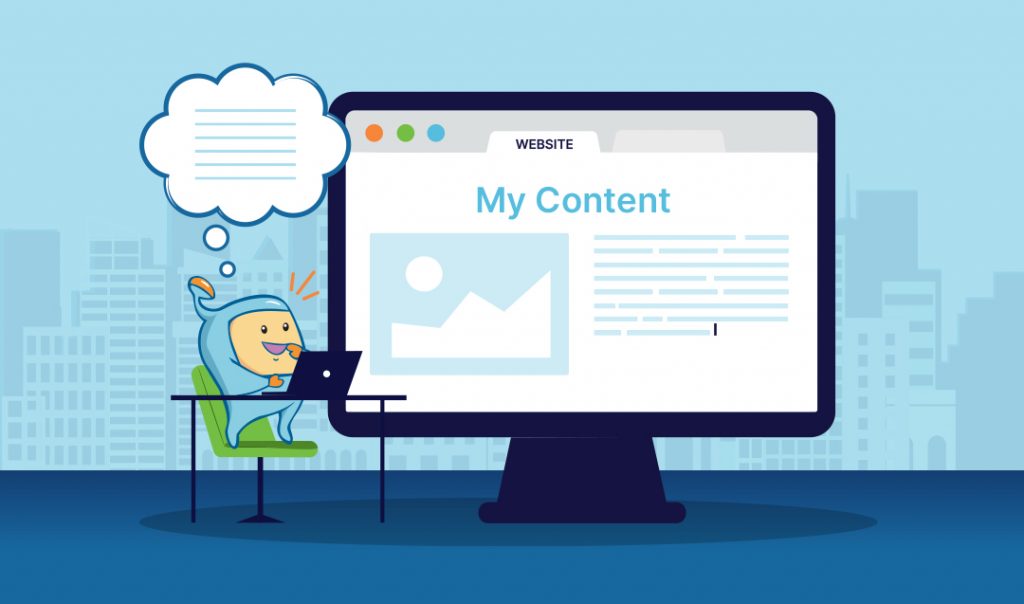
On-Page SEO is the optimization of your actual website and its content which is why it is termed as “on-page”. This comprises of making sure that you are using your target keywords on your pages, making sure that your content is high quality and satisfies the intent of the searcher visiting your page, and incorporating your keywords and related terms in various sections of your site, among others.
Basically, the goal is to make sure your site or your page is relevant for the particular keyword and that Google understands that your page is about that particular topic or keyword that the user is searching for, so that it would rank you for that term.
There are a lot of factors when it comes to on-page SEO. Examples of it are the use of your keyword in the content, using terms that are naturally mentioned when the topic or keyword is talked about, using your keywords or variations in your htags, optimizing your meta titles and meta descriptions, among others.
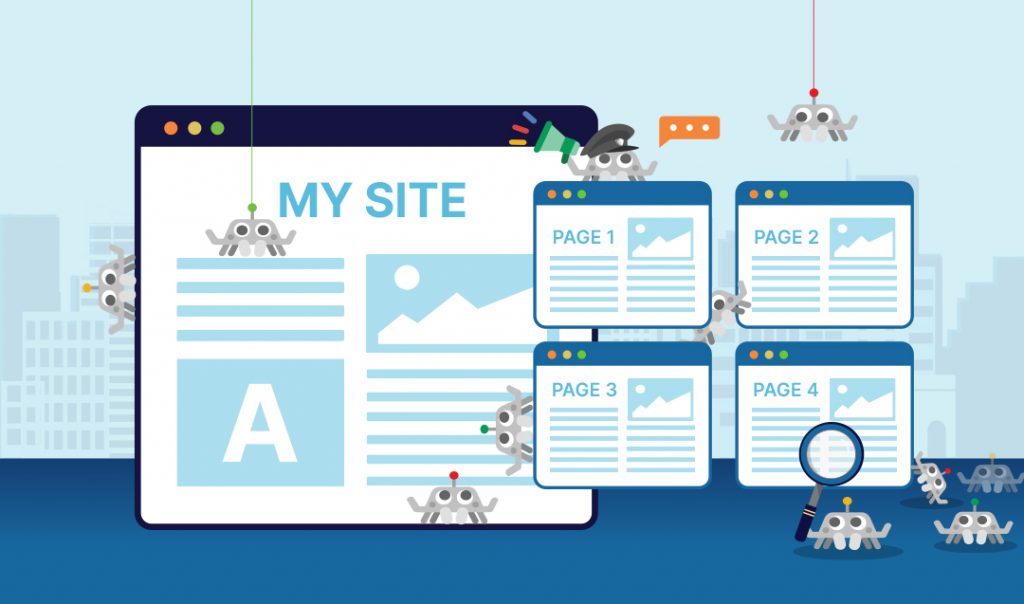
Technical SEO is the technical aspect of your site such as making sure you have a good site speed so that your pages load quickly when crawlers and visitors access your site, and also making sure that your pages can be crawled and indexed properly by search engine crawlers and that there are no issues encountered when they visit your page.
Issues that can be encountered in the technical side of SEO that must be dealt with include 404 issues, failed 301 redirects, etc.
Site architecture or the internal linking structure is also a part of technical SEO. Actually, we can say that it is both technical SEO and On-page SEO as a good internal linking structure helps crawlers index your pages easily and also understand the content of your site and their relationship to each other better.
Making sure that the technical aspects of your site are on point helps crawlers crawl your site and index pages properly, and in turn, understand what your site is about and how it relates to different search queries.
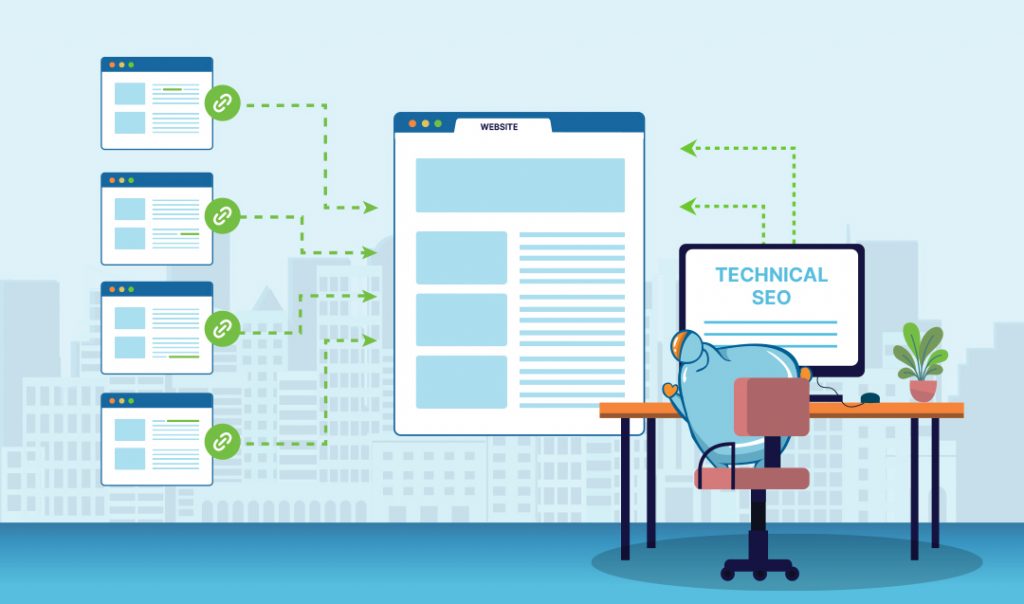
Off-Page SEO deals with things off-page such as backlinks, social signals, etc. Off-page SEO is mainly building the trust and authority of your site by gaining backlinks from other websites. Search engines read backlinks from other websites as a vote of confidence and trust in your content – your content is valuable, which is why it has received a link from another website.
The more high-quality links a page has, the higher the rank it could have. It is one of the top-ranking factors considered by Google when it comes to ranking a page in the SERPs.
Some also consider user interaction signals as part of SEO. This mainly deals with how users interact with the site when they get to the page. Do they leave as soon as they visit the site or do they stay and go through the content? Do they visit other pages of the site?
High bounce rates or when visitors visit the page and leave immediately means that there is something wrong with the page and content and Google takes it as the user is not happy. If Google sees that people are bouncing and that they seem unhappy with the results, this could lead to a drop in rankings.
On-Page SEO, Technical SEO, and Off-Page SEO work hand in hand when it comes to ranking a site. Making sure that your site and the content are high quality and are relevant to the search terms, making sure that your site is accessible and no hitches are encountered by both users and crawlers, and making sure that your site is trustworthy, reliable, and have authority, are all important factors that could help you get to the top of the organic search results.
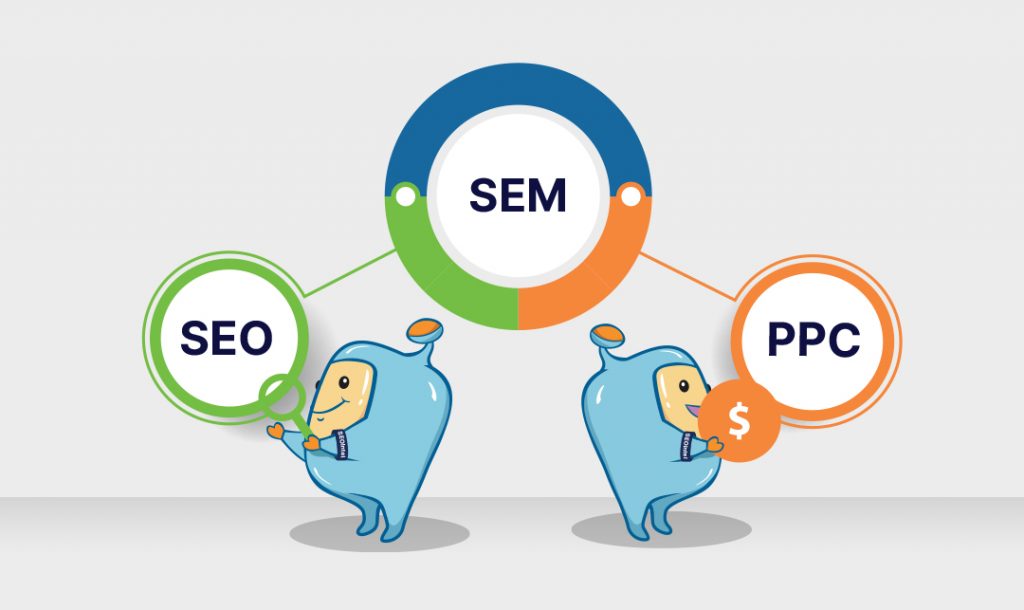
Search Engine Marketing or SEM includes SEO, so everything that I have mentioned above about SEO is also a part of SEM. In addition to that, SEM also includes Pay-per-click, in order to show up in the top, paid part of the Search Engine Results Page.
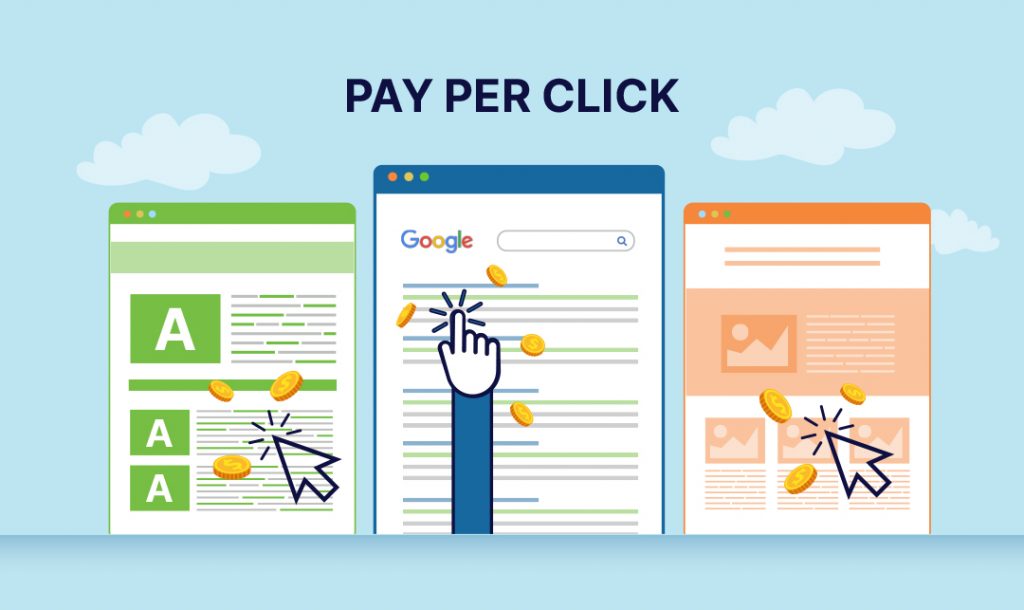
Under PPC or Pay-per-click, you bid on a specific keyword so that when someone searches for that keyword, your ad shows up at the top, paid search part of the search results. This is usually done in Google Ads (Bing Ads for those who are also targeting Bing).
The order of how the ad shows up in the paid search section depends on the bid placed. The highest bidder would appear at the top, above all the others, followed by the other succeeding bids.
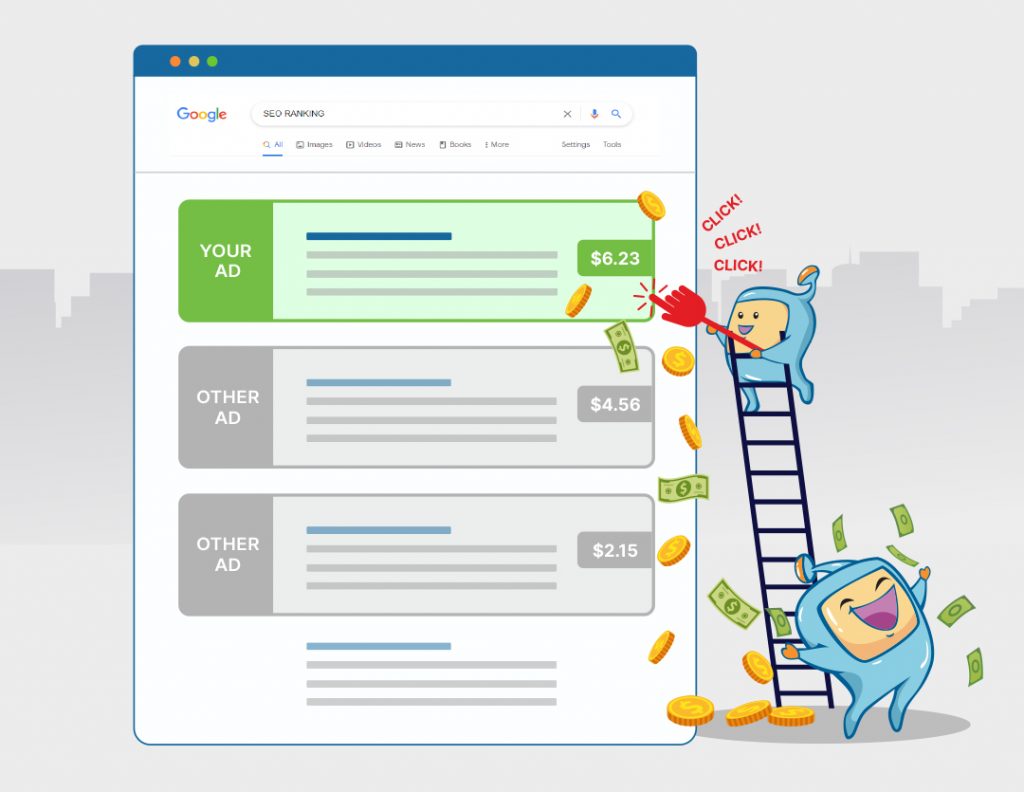
When someone clicks on the ad, then you will be paying for the amount you have bid on for the keyword. For example, if you bid on $5.00 for the term “Luxury vacation in Cancun”, then when someone searches for the keyword, clicks on your ad, you would have to pay $5 for it. Thus, the term pay-per-click.
The ads can show up in a variety of formats. It is not only limited to a text ad in the paid part of the search results which can look similar to what the organic search results look like, other than the ad icon that differentiates it.
There are also visual-based ads such as product listing ads or shopping ads which can show up when searching for particular products.

Take note, however, that not all ads show up in the search results and just cause you bid on a keyword, does not mean it would automatically show up in the paid search section for that keyword. There are two main factors that are considered – the maximum bid and the quality score.
The maximum bid is the highest amount of bid that a bidder is willing to pay for a click. As mentioned earlier, the highest bidder gets the top spot, followed by the succeeding bids. This means that if your bid is significantly low compared to the ones that have a higher bid, your ad would end up not showing up.
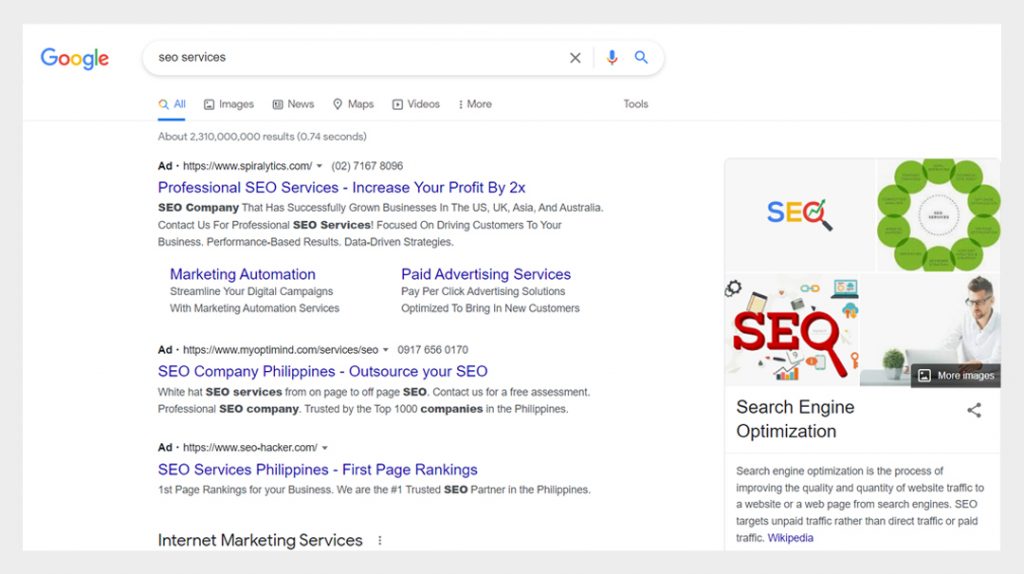
Quality score is an important Google Ads metric and is determined by the quality of your advertisement. It’s a score by Google that determines how good a match your ad is for the search. Google calculates the score based on the click-through rate, the quality of your landing page, and your Google Ad’s account overall quality score.
If Google determines that your ads are good matches and users are clicking on your ads, then you will have a high-quality score. A high-quality score means that you will get a discount on each click.
Setting up a good ad copy is also an important factor to consider. This is because a good ad copy drives someone to click on your ad compared to the other ads and other results, which could lead to a high click-through rate, a higher quality score, and less payment for each click. If your ad copy is not interesting enough and no one clicks on it, then your quality score will suffer. This could mean that your PPC campaigns can start to get more expensive.
Basically, SEM is targeting both the paid search part and the organic part of the search results in order to get traffic to your site. There are pros and cons to both, it really depends on your goals. Let us discuss them further.

When it comes to costs, a lot of people prefer to go for SEO because they assume that it is free. While it is free to rank in search and does not have any upfront costs compared to PPC, SEO is not free. Optimizing your page requires time, effort, and with it, tools and services, to help you rank.
As an example, if you do not write your own content, you would need a writer, for your graphics, you would need a graphic designer, a developer to check your site and make sure everything is working as it is. When it comes to tools, you would need a tool to track your rank, to analyze your site and your competitors. You may also need to join SEO courses to gain SEO knowledge and help you with what could help you rank. Those are just a few costs involved in SEO. There are a whole lot more, depending on your site and what are needed in order to rank.
With regards to SEM, it would be double that as you would have to take care of the SEO part in order to rank your page organically, plus you have to have a set budget for your PPC campaign.
With regards to a PPC-only campaign, you would have to take care of your spending up-front, depending on how much is your budget for your bids and per click that comes in. Aside from that, you may also need someone to help you with your ad copy and landing pages, among others.
With the PPC only option, it can be a cheaper option compared to SEO or a full SEM campaign that includes both SEO and PPC. However, the main issue with a PPC-only campaign is that when you stop paying, you also lose the traffic to your site. As compared with an SEO campaign that once all your optimization pays off and you get your pages are ranked, you can have a steady flow of traffic to your site.
Make no qualms though, do not think that once you rank, you’re all set for life. Unfortunately, SEO is a moving target and Google always updates its algorithm. In addition, your competitors may be doing their SEO work, too. This means that SEO is constantly changing and evolving. Even if you already rank, there is still maintenance work involved in order to maintain your rank.
Both SEO and PPC have their costs involved. Both have their pros and cons. In the end, it would be up to you and your budget. A lot of businesses go for SEM because of the combination of both SEO and PPC. However, a higher budget is needed in order to be able to do both.
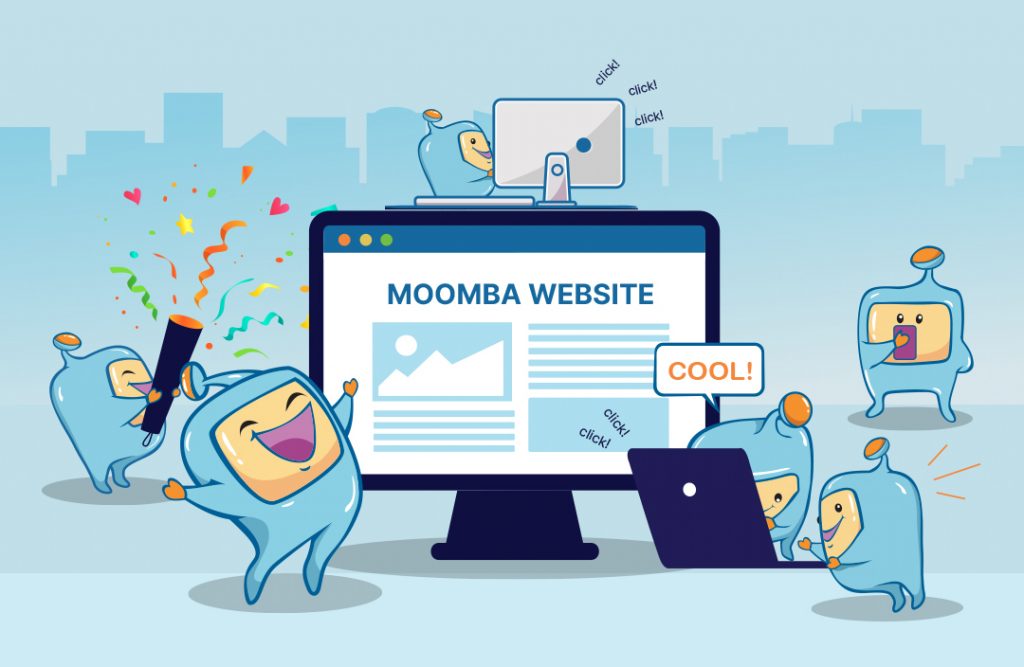
When it comes to results, SEM or PPC trumps that of SEO because PPC can generate faster results.
One thing about SEO is that it takes time. It does not generate instant results. There are a lot of factors involved in SEO and it is a combination of On-page SEO, Technical SEO, and Off-page SEO, factor in your competitors, the competitiveness of your niche and your keywords. It may take months, even years to get your page ranked and to see all your efforts being rewarded.
On the other hand, with PPC, you can see results much quicker. You can set a PPC campaign and see traffic to your site in a couple of hours. However, this does not guarantee conversions. It still depends on your site, of course. While you can generate traffic quickly, it can still take a few tries, testing and tweaking, to be able to learn and set campaigns that can really work for you.
Nevertheless, PPC can work quicker compared to an SEO-only campaign and if you need results quick and you have the budget, then PPC may be the right one for you.
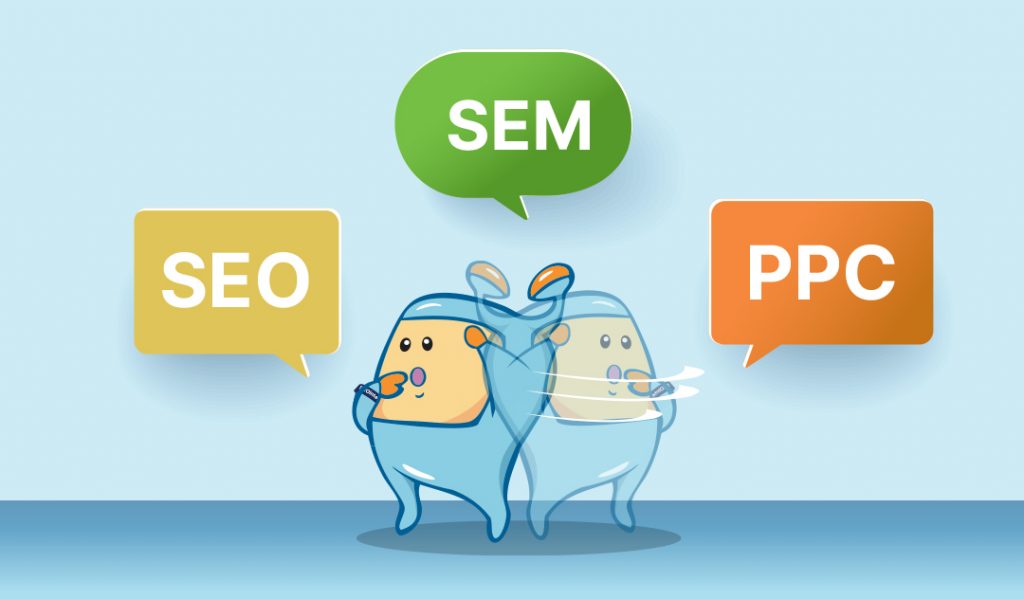
Wondering which you should go for, an SEO campaign, a PPC campaign, or a full-blown SEM campaign that makes use of both? Let’s talk about each individually.
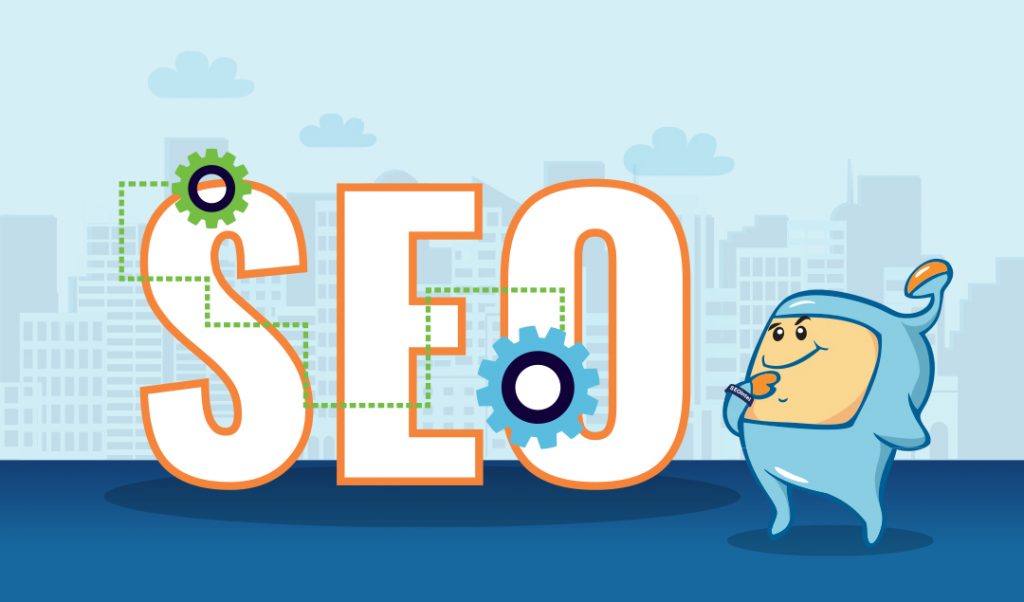
If budget is an issue, then going for SEO may be a good option for you in that, it does not require as much budget compared to a PPC only or a full SEM campaign. It may take a while to see the results of your SEO work however, once you get your page ranked, the flow of traffic is steadier and you only need to do maintenance work. This is in comparison to PPC where your budget may only get you to run a week or so, and then once it dries up, your traffic also disappears.
Should you go for the SEO route, I recommend targeting low-hanging fruits or long-tail keywords to start, as they rank faster and so you could start generating traffic to your site.
Generating content that people search for is also a good way to gain traffic to your site. Make sure that your content is high-quality content to be able to get your page ranked for such queries and in order to gain backlinks organically.
Check out our news article on forums as a content source that generates traffic – it’s a great hack and process that can help get you started.
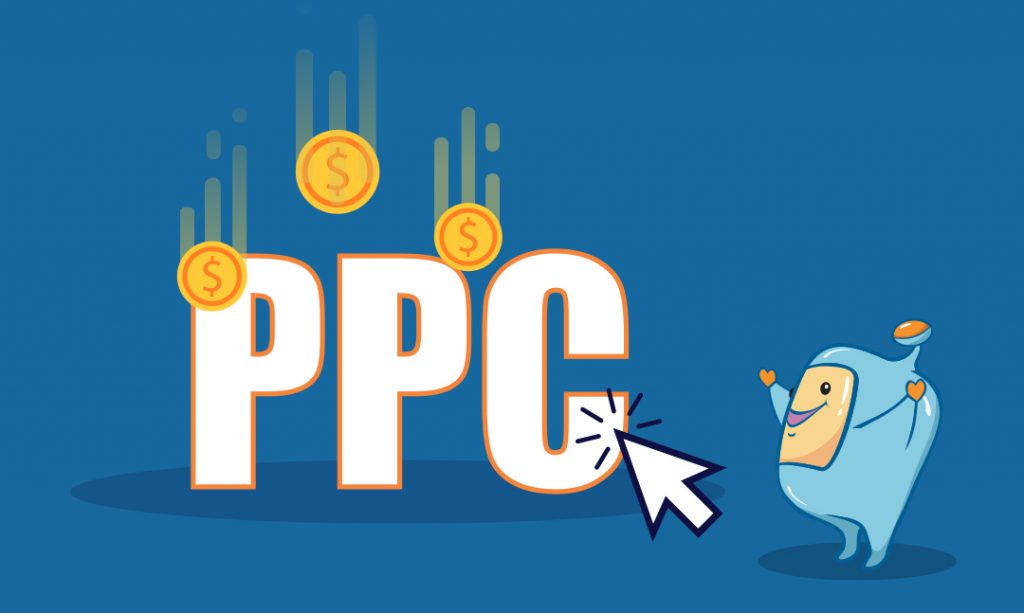
If you have a consistent budget and do not have much time to wait and do a lot of optimizations required for SEO, then the PPC-only route can be a good option for you.
For PPC, you can set a particular budget per campaign so that you do not spend more than what you have planned. However, setting PPC campaigns can also be trial and error and may require testing from your end in order to find something that works for you.
As earlier mentioned, it requires setting a budget and bidding (remember that the higher the bid, the higher the spot in the paid search results), coming up with an enticing ad that will get people to click on the listing, and a landing page that can convert. If you do not know what you are doing, you may have campaigns that do not convert well and end up getting a low-quality score, which spells more expensive campaign costs.
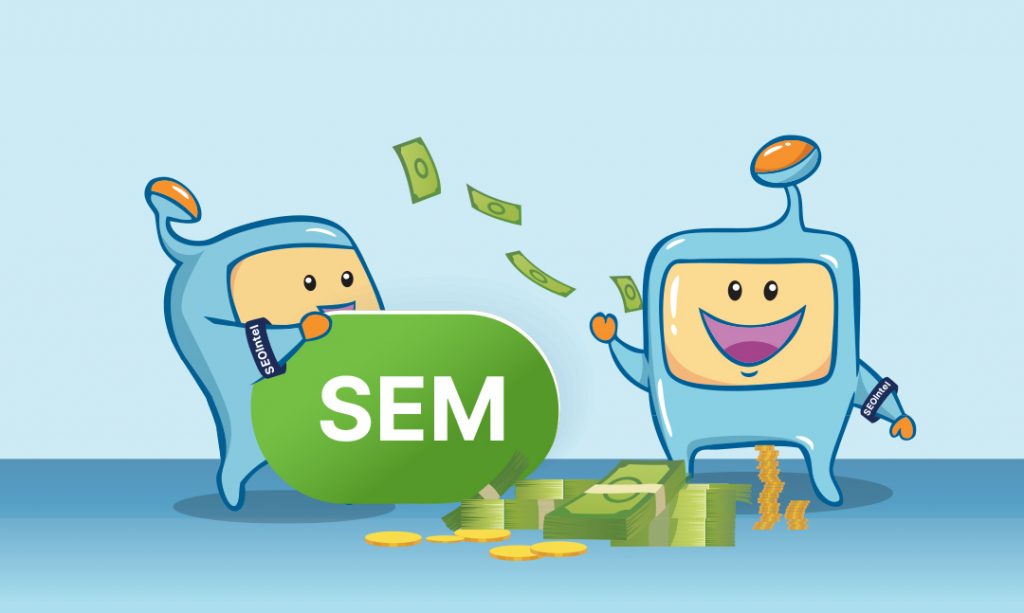
Obviously, the best option would be a full-blown SEM campaign that has both SEO and PPC as you would be able to get the best of both worlds.
However, going for this option requires quite the budget to be able to handle both the SEO and PPC part of the campaigns.
In addition, this would require a team that can handle the SEO side and the PPC side. Both SEO and PPC require a lot of work in order to generate results and to generate successful campaigns. It is simply not a job for one person.
The main advantage of SEM is that you can show up in the search results and generate a steady source of traffic to your site. The PPC campaigns can take care of the traffic while you work on the SEO of your site and get your pages ranked, and once you have your pages ranking through your SEO work, you can minimize your PPC or stop it altogether.
While SEO and SEM have their differences, their main goal is the same, to show up in the search results page and to generate traffic to your site. Whether to go for SEO, PPC, or SEM, it really depends on your budget, your goals, and your preferences.
I hope this article was able to explain SEO, PPC, and SEM, their similarities and differences, and that it can help you decide which is the best for you and your business.
Need help in getting started with your SEO? Join us in SEOIntel and get access to SEO tests, courses, resources, and more!